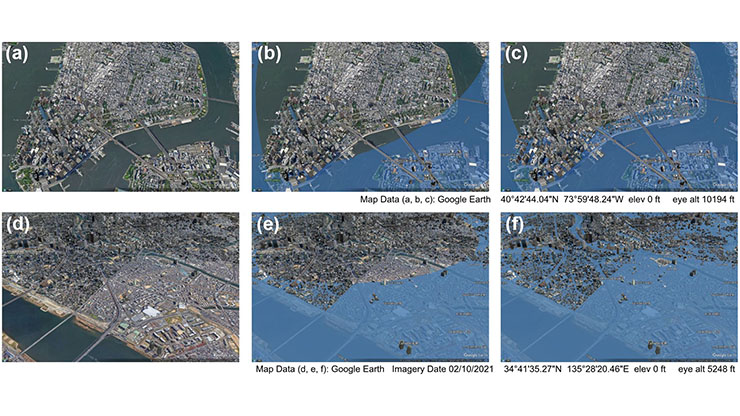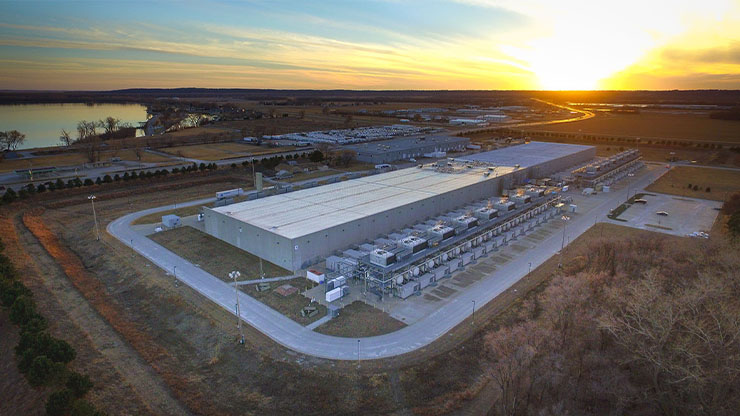Evaluating the Good and Bad of Artificial Intelligence Tools for Climate Research
Climate change—intertwined with habitat loss, resource extraction, and power usage—is arguably the single biggest issue that humanity faces today. Researchers are contemplating all available tools—including machine learning, a term that is often used interchangeably with artificial intelligence (AI)—to model, mitigate, and otherwise prepare for impending crises. However, no one approach is a panacea; scientists who utilize these tools must sort through legitimate use cases, unnecessary deployments, and broader questions about AI’s positive and negative effects on the future of the planet.
“AI can be a powerful tool for climate action,” Priya Donti of the Massachusetts Institute of Technology said. “[It] enables us to get better foresight on renewable energy; optimize things like heating and cooling systems; and accelerate the scientific discovery and creation of clean technologies, such as next-generation batteries.”
During her presentation at the 2025 American Association for the Advancement of Science (AAAS) Annual Meeting, which took place this past February in Boston, Mass., Donti described the delicate balance between AI’s climate benefits and its serious ecological drawbacks. “AI is used in ways that accelerate emissions-intensive applications that are counter to climate progress,” she said, citing its role in fossil fuel exploration and extraction, as well as the widespread adoption of targeted AI-based advertising that increases consumption and carbon footprint.
In an AAAS session about AI in the era of climate change, Donti’s fellow presenters discussed specific issues with AI in primarily nonscientific contexts that are nonetheless relevant to all questions that surround AI’s application to climate change and other ecological and conservation-related matters. Specifically, they asked the audience to consider the balance between urgent climatological needs and concerns about access to data, algorithms, and natural resources. In other words, does the need for AI in climate settings outweigh the drawbacks? The answer, as always, is that the situation is complicated.
AI Helping Hand
Naturally, not all AI is created equal. For instance, generative AI chatbots and content generators—systems that scrape content from the internet to produce derivative text, images, or video—are in a fundamentally different class than specific scientific applications. This necessary distinction allows scientists to specify the benefits of AI for climate research [1].
Donti co-founded the nonprofit Climate Change AI with Lynn Kaack of the Hertie School in Berlin and David Rolnick of McGill University and Mila – Quebec AI Institute, based on the notion that the proper use of AI can benefit the planet. Beyond the application of machine learning to various problems in energy generation and transmission, the organization also seeks to ensure that the models themselves align with appropriate values. In other words, Donti and her colleagues aim to develop and utilize efficient algorithms and foster collaborations that include people whose lives are most affected by the research.
“We started Climate Change AI not out of the belief that AI will solve every problem in climate—nor that it’s best suited for any problem—but out of the belief that there are places where AI is useful,” Donti said. “There’s a huge talent pool that is worth mobilizing to actually do that. In finding that community, you can take action on this issue.”
Donti’s AAAS co-presenter Elke Weber, a psychologist at Princeton University, agreed. She affirmed that AI can help identify rational climate interventions, thus aiding the decision-making process for nonscientists and promoting a sense of community. Weber considers this capability to be especially important in the U.S., noting that American society often places the burden of climate mitigation on individuals rather than collaborations and emphasizes single-action solutions over long-term acts on multiple fronts.
Stealing Water to Green the Grid
At the same time, even well-intentioned AI can be troublesome. All large-scale computations require energy, water to cool the computers, and natural resources to manufacture processors and other physical devices. In 2020, roughly 1.4 percent of global greenhouse gas emissions originated from the computing sector — a statistic that includes energy consumption and resource usage for building and operations (see Figure 1) [2]. The creation and deployment of increasingly more computers will not solve the climate crisis if they simultaneously exacerbate the problem. Many data centers are located in water-stressed environments, so even those that utilize solar energy still consume other scarce resources.
![<strong>Figure 1.</strong> Breakdown of the contributions to greenhouse gas (GHG) emissions from the information and communications technology (ICT) sector in 2020, with a focus on the specific impacts due to artificial intelligence (AI). The share of impacts from AI has grown in the intervening years, though a lack of transparency on the part of AI and utility companies makes it difficult to gauge the precise contribution to climate change. Figure courtesy of [2].](/media/5uwp2d2g/figure1.jpg)
As Eric Masanet of the University of California, Santa Barbara, pointed out during his AAAS talk, data centers had been becoming more energy and resource efficient until AI and cryptocurrency reversed that trend. However, actual usage data is incomplete due to the lack of transparency from utility and AI companies alike. One issue is that even “green” AI centers may still use fossil fuels while making promises to switch to renewables or nuclear power in the future [5, 6]. Masanet remarked that we do not yet know whether AI will help the world achieve net-zero carbon emissions or accelerate climate change, and Donti echoed those comments [3].
“It’s great that there’s more clean electricity on the grid, but none of our global decarbonization pathways account for an unlimited increase in the amount of electricity that we as a society are using,” Donti said. In other words, adding more energy to the existing grid without addressing questions of efficiency does not reduce carbon emissions, which is the single most important factor in combatting climate change.
Cloud computing is another subtle issue that is associated with energy use in AI and other large-scale computations. For example, recent studies have found that cloud computing—which moves actively-running programs from local machines to distributed computers, perhaps in quite distant locations—adds hidden energy costs while bypassing some greenhouse gas regulations [4]. Again, transparency is key when accounting for actual consumption; current levels of ambiguity lead to genuine complaints of “greenwashing,” i.e., pretending that something is more ecologically friendly than it actually is.
Hope, Despair, Doom, and Optimism
All three speakers acknowledged that none of these problems are specific to climate-centric AI applications. However, practitioners must remain aware of them if they wish to refrain from contributing to the same issues that they are trying to address.
On the technical side, Donti and her colleagues frequently use an older style of AI computation that begins with established physics-based models. In contrast, most contemporary efforts rely on more general machine learning algorithms that attempt to deduce a model from training data — a technique that is far less efficient in terms of the amount of necessary starting data and the energy consumption of the computations. Simply put, “smaller” thinking is not always a drawback when the goal is to improve both the scientific results and the underlying processes.
Weber also noted that generative AI chatbots and search engine insertion “summaries” from Google, X, and other online sources actively spread climate change misinformation and conspiracy theories. She advocated for a greater use of qualitative data and more input from fellow social scientists — a group whose expertise is often ignored in conversations on this topic.
Even more importantly, the three speakers collectively agreed that researchers who use AI to study climate change and mitigation tactics must consider vulnerable populations in their efforts, given that climate change disproportionately affects the people who are least likely to be consulted on questions about energy use, environmental impact, and so forth. Outreach, education, collaboration, and a heightened emphasis on social justice can all help increase representation.
In the end, AI is a tool that can be put to good or bad uses. Because its current implementation generally does not favor the climate, practitioners who utilize the technology must be especially cognizant of its drawbacks, not just its advantages.
References
[1] Francis, M.R. (2024, September 3). Cataloging biodiversity with artificial intelligence. SIAM News, 57(7), p. 1.
[2] Kaack, L.H., Donti, P.L., Strubell, E., Kamiya, G., Creutzig, F., & Rolnick, D. (2022). Aligning artificial intelligence with climate change mitigation. Nat. Clim. Change, 12(6), 518-527.
[3] Luers, A., Koomey, J., Masanet, E., Gaffney, O., Creutzig, F., Lavista Ferres, J., & Horvitz, E. (2024). Will AI accelerate or delay the race to net-zero emissions? Nature, 628(8009), 718-720.
[4] Mytton, D. (2020). Hiding greenhouse gas emissions in the cloud. Nat. Clim. Change, 10(8), 701.
[5] Orlando, K. (2024, September 20). Re-opened Three Mile Island will power AI data centers under new deal. Ars Technica. Retrieved from https://arstechnica.com/ai/2024/09/re-opened-three-mile-island-will-power-ai-data-centers-under-new-deal.
[6] Wittenberg, A. (2025, May 6). ‘How come I can’t breathe?’: Musk’s data company draws a backlash in Memphis. Politico. Retrieved from https://www.politico.com/news/2025/05/06/elon-musk-xai-memphis-gas-turbines-air-pollution-permits-00317582.
About the Author
Matthew R. Francis
Science writer
Matthew R. Francis is a physicist, science writer, public speaker, educator, and frequent wearer of jaunty hats. His website is https://bowlerhatscience.org.
Related Reading
Stay Up-to-Date with Email Alerts
Sign up for our monthly newsletter and emails about other topics of your choosing.






